Issue 73 : 24 January 2021
Talofa Lava, Kia Orana, Malo E Leilei, Tena Koutou, Hello ...
... and welcome to the latest issue of “For The Love Of The Game”, the official e-zine of the New Zealand Amateur Sport Association Inc. We hope you enjoy reading the articles below.
If you have any feedback on this issue, ideas for future articles, or would like to contact the Editor, please click here. And, you are invited to forward the e-zine to others you know, who may be interested in reading it. An archive of earlier editions of the e-zine can be found here. For those who follow Twitter, you can also follow the Association, @AmateurSportNZ.
If you are interested in applying for membership of the Association, please click here.
Four Southern Football Clubs Propose To Create One ...
The initial stages of a merger between four Dunedin football clubs is underway, with “senior” clubs Caversham AFC and Technical AFC looking to create a combined on-field presence in 2021 under the proposed banner of “South Coast United”. The new initiative also includes the Herewaka and Melchester “junior” clubs as part of a potential amalgamation of all four community clubs in 2022.
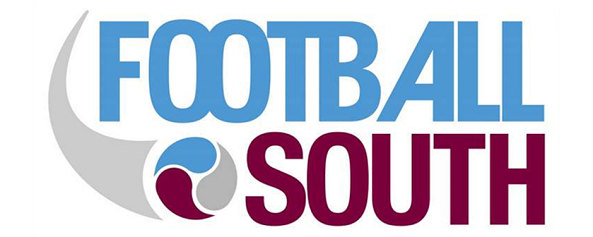
Phil Collings, President of Caversham AFC and Tony Boomer, President of Technical AFC note that the establishment of a new “Federation Youth League” for junior football players and a new “South Island League” for senior teams by the sport’s regional governing body (Football South), means that there is a need to “improve the capability of all entities to align with upcoming Football South licensing requirements”.
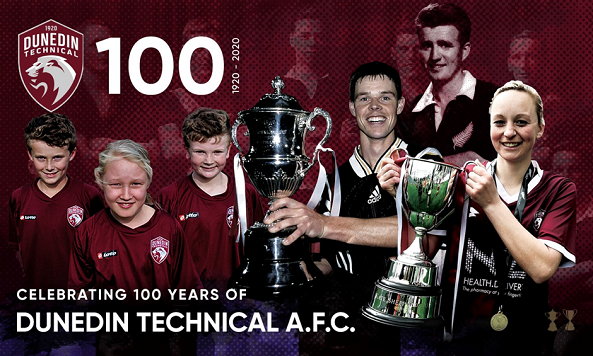
Originally formed as the King Edward Technical College Old Boys Club in 1920, Technical AFC last won the Chatham Cup in 1999, with the club last winning the Football South Men’s title in 2018 and the Women’s title in 2020. The Caversham Club was formed in 1931 and in its history, has reached the semi-finals of the Chatham Cup on six occasions. The current move is not without precedent. 51 years ago, the two clubs formed a combined team (with the Maori Hill club) named “Dunedin Suburbs” which competed in the National League, finishing sixth out of 10 teams that year. The combined effort only lasted one season.
Viewpoint : “Risk Is A Choice, Rather Than A Fate" ...
In his 1996 book “Against The Gods”, author Peter Bernstein writes, "the word 'risk' derives from the early Italian risicare, which means 'to dare'. In this sense [he reflects], risk is a choice rather than a fate. The actions we dare to take, which depend on how free we are to make choices, are what the story of risk is all about. And that helps define what it means to be a human being.”
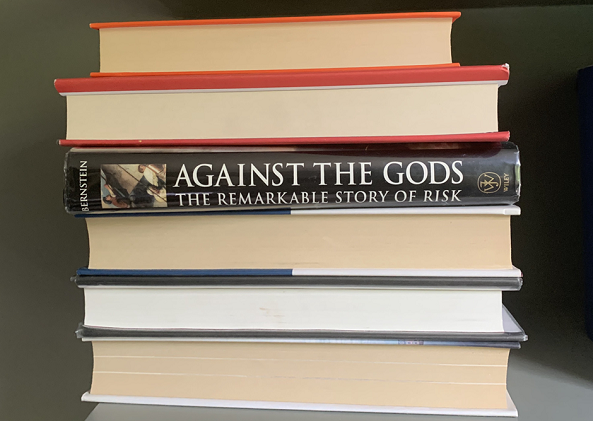
When it comes to contact sports, players freely assume the risks of personal injury that may arise from their participation. They choose to do so, based on an implied understanding that the rules of the game are crafted to ensure their personal safety, within the parameters or limits considered acceptable by their chosen sport’s governing body.
In June 1877, Frederick William Pilling, a young sharebroker from the Parnell Football Club in Auckland died as the result of a collision with an opponent from the Ponsonby Football Club, during a match played on the Auckland Domain. The jury at the coronial hearing ruled that while the death (resulting from “concussion of the spine”) was accidental, the rules of the game “should be modified with the view to the prevention of future accidents”.
As a result, Rule 57 of the then “Laws of the Game” were amended to prohibit “hacking, hacking over, tripping up, slinging, rabbiting, or butting”. It was noted that, when reflecting on Pilling’s untimely demise, “it is a pity that such a sacrifice was demanded before the necessity for alteration [of the rules] was recognised.”
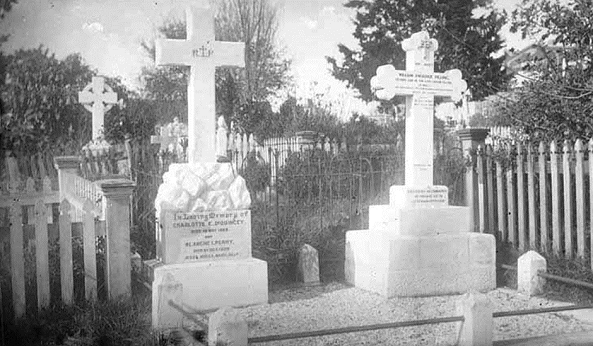
(Frederick Pilling’s football colleagues erected a memorial (right), following his death)
144 years later, there is no doubt a much greater medical understanding of the physical risks of contact sport and where necessary over this period, additional "ex-post" modifications of the rules of various sporting codes have been made, typically where evidence has pointed to the sound reasons for doing so. In the current era, there is perhaps a more urgent need for ongoing consideration of certain risks on an "ex-ante" basis, where medical evidence indicates that certain risks of injury should be minimised.
In his book, Peter Bernstein also observes that “fear of harm ought to be proportional not merely to the gravity of the harm, but also to the probability of the event.” It is incumbent on the governing bodies of all sports to ensure that their “Laws of the Game” are appropriately framed based on the probability of harm arising from participation, to ensure their community members are well-informed when choosing to accept the risks of “playing the game”.
New Zealand - ITCC World Champions ...
New Zealand has won more "International Tree Climbing Championships" in the past decade than the nation has won in more traditional sports such as Rugby Union or Cricket over the same period. Moreover, New Zealanders James Kilpatrick (three world titles) and Nicola Ward-Allan (one world title), also hold the World Records for the fastest 15 metre tree climbs.

The World Championships have been administered by the International Society of Aboriculture based in the United States (a not-for-profit organisation which promotes tree care and education) since 1976, with the current Men’s World Champion, the aptly named Scott Forest from New Zealand, (who also has three world titles to his name). Following the cancellation of the 2020 competition in New Mexico, the next World Championships are scheduled to be held in Copenhagen, Denmark in September this year.
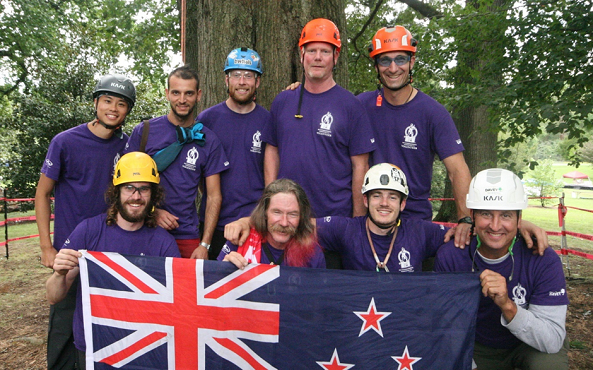
(The New Zealand team at the 2017 ITCC World Championships, in Washington DC)
While all competitors are aborists by profession, the purpose of the competition is promote aboriculture through public education and a “competitive learning environment”, with the winners receiving the opportunity to return the following year to defend their titles.
21% Of Dissolved Sports Clubs Still Operating ...
Research undertaken by the Association has revealed that of the sports clubs dissolved by the Registrar of Incorporated Societies over the past five years (from 2016 to 2021) nearly a quarter of are continuing to operate without incorporated status. Over the five-year period more than 4,000 incorporated societies were dissolved by the Registrar, with over 20% of these being sporting organisations. Only 14% of dissolved incorporated societies have subsequently had their dissolved status revoked.
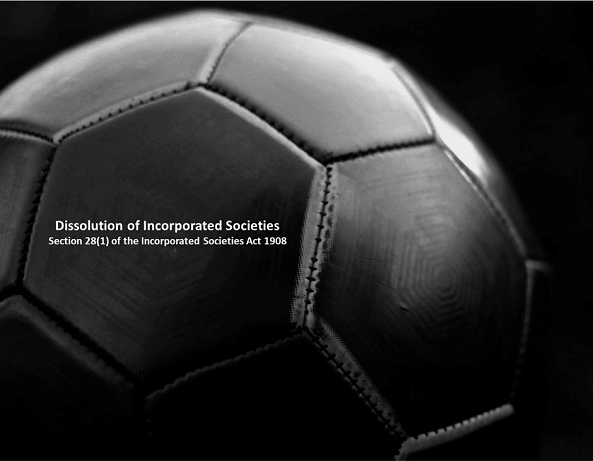
The Association intends to make a submission to the Parliamentary Select Committee on Incorporated Society law reform to ensure that suitable steps are taken to protect incorporated sports clubs, many of which are unaware of and not easily able to meet their regulatory requirements under the existing law.
“Rugby League Bill” Heeds The Full-Time Whistle ...
Born in 1931, William Albert Whitehead was the son of Sir Stanley Whitehead, a former Labour Party Member of Parliament for Nelson. Whitehead “senior” (with his brother Bill) played rugby league for Inangahua and Blackball on the West Coast, with Stanley later become a referee, controlling provincial matches. There is therefore little doubt that Whitehead “junior” developed his love of the game at the knee of his father and uncle, and that the respect that Stanley had for his brother resulted in his son being christened with his name.
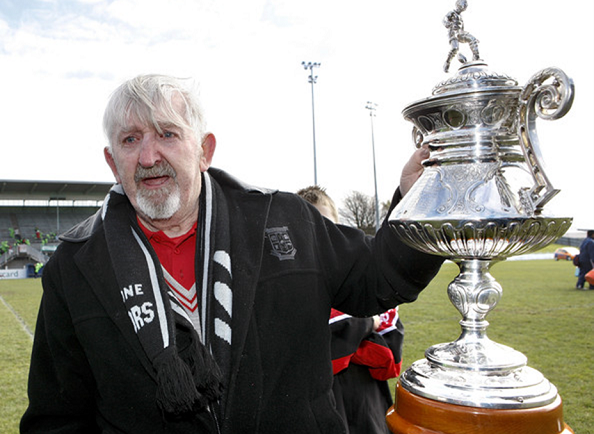
("Rugby League Bill" gave over 60 years of service to the sport of Rugby League)
Stanley Whitehead was the patron of several sporting clubs, including rugby, boxing, soccer, marching, bowls, and rugby league. Like his father, Bill also became heavily involved in many sports, including his role as the media manager of weightlifting at the 1974 Commonwealth Games, coordinating the Rugby League Night in conjunction with the Canterbury Park Trotting Club for 30 years, and being tournament convenor for the Canterbury Licensed Trade Bowls Club. But it was in Rugby League that Bill’s heart lay, with over 60 years of service to the game as a manager and administrator, player and referee.
In 1987 William Albert Whitehead was awarded the Queens Service Medal for his service to community sport. "Rugby League Bill" died on 15 January 2021, in his 90th year. You can read more about his sporting life, here.
"Non-Violence In Sport" (NOVISPORT) Seeks To Find Sport’s Real Values ...
Originating in Italy in 2018, NOVISPORT (funded by the European Commission) was formed with the overall purpose to prevent incidents of violence, racism and any form of intolerance in sport, particularly in youth sport and at the amateur level, by educating young people to the “true sport culture” and “real values of sport”.'

Embraced by the European Football for Development Network (EFDN), the project specifically looked at the power of football as a tool for social development. Of interest, in Europe, violent behaviour is often linked with "sport entertainment events", with NOVISPORT suggesting that the “enjoyment and sociability” which is a foundation of sport has been lost, resulting in European youth needing to be re-educated on the “behavourial skills which enable sport to play in role in creating an inclusive society.”
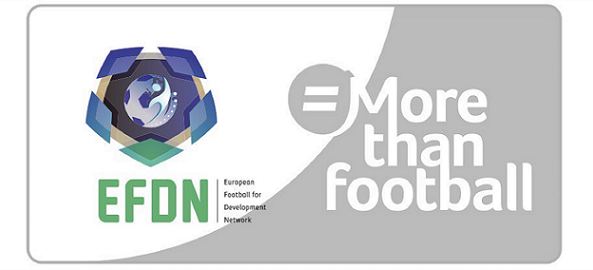
The European Commission notes that professionalism has had a big impact on the incidence of sporting violence. “From a weekend event, soccer has been drawn out as a permanent campaign. Live matches, footy shows, sport journals and a range of entertainment programs help to stage soccer as a continuous “pseudo-event”. Promoting soccer as a spectacle poses, however, new threats and risks.” To read more, click here.
From The Archives ...
OUTDOOR SPORTS AND PASTIMES
FREE LANCE, VOLUME XV, ISSUE 825, 20 APRIL 1916, PAGE 17
“Marcus Marks, the newly appointed Government Printer, has been a keen supporter of athletic sport for many years. In its early days he was the honorary secretary of the Poneke Football Club. Marcus Marks was an expert with the boxing gloves in his younger days. He won the Gardiner Blackmore Cup for all-comers at amateur boxing and was amongst those chosen to put on the gloves against Jem Mace, when the old-time champion visited New Zealand.
Since our present Government Printer stopped training, and allowed his too solid flesh to accumulate, he has taken with great zest to bowls, Marcus Marks, to give one more of his activities in the sports world, represented the Waitemata (Auckland) and Wellington Clubs on the New Zealand Rowing Association. He also was one of the appeal judges of that body, and pulled a fine, strong oar himself in the days of his fiery youth.”
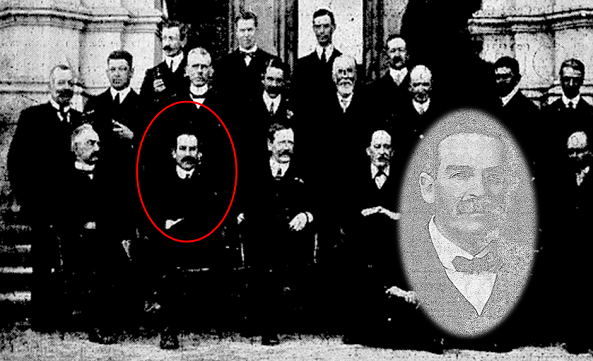
(The staff of Parliament in 1913, Marcus Marks, circled)
Marcus ("Mark") Francis Marks’ notable lifetime contribution to the community was (in part), prompted by personal tragedy. He was born in 1863, in Ballarat, Victoria, the son of prominent Australian businessman Morris Marks and his wife Leah. In the early 1870’s the family moved to Glenbervie Terrace in Wellington, with Marcus securing a job in 1877 as a proof-reader with the Government Printer.
The Depression of the early 1880’s saw Marcus (and all single-men) lose their Government jobs, so he left Wellington for Melbourne in 1883 where he obtained a position with “The Age” newspaper, marrying Ruby Josephine Quinn the following year. They had two children, a daughter, Doris Ruby, born in Melbourne in 1885 and a son Douglas Morris, born in 1889 in Wellington. In 1886 Marcus was re-offered his position with the Government Printer, so the young family returned to New Zealand. In 1896 he became a supervisor of Hansard, then in 1916 he was appointed Government Printer, a position he held until his retirement in 1922.
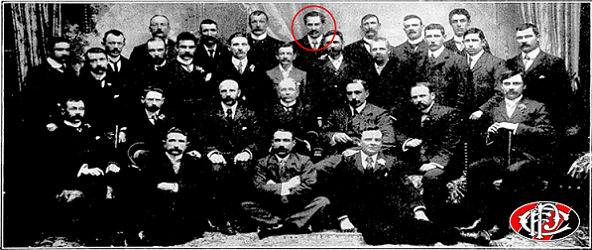
("Old Members of the Poneke Football Club 1883-1903", Marcus Marks, circled)
In 1892, following a short and painful illness, his wife Ruby died. In 1901, Marks travelled to Sydney, and as the Christmas holidays approached, his son (then 13 years old) came back from boarding school and went to stay at Worser Bay with some friends until his father arrived home.
On the day of his father’s return, “he was eagerly looking out for the Monowai, by which his father was expected from Sydney. He went off on his bicycle, and climbed the hill above Worser Bay, in order to get a longer look out to sea. It is surmised that he was caught by a strong gust of wind on one of the turns of the road and blown a distance of 25 yards, before being hurled over the cliff at a spot where there is a clear drop of 30 feet. When found he was unconscious, and he remained so from Wednesday forenoon till Friday afternoon when he died.” A year earlier, Marks’ daughter Doris narrowly escaped death from a fatal fire in Martinborough in which three died, by jumping 17 feet from a second-floor window to the ground, to escape the flames.
In addition to his sporting achievements noted above, Marks was a member of the Management Committee for both the Wellington Rugby Union and New Zealand Rugby Union, the founder of the Thorndon Amateur Swimming Club and a member of the Miramar Golf Club.
An amateur actor, Marks was a member of the Wellington Shakespeare Club and the Wellington Savages Club (where he was “Chief Savage”). Following the accidents which affected his family, he became a member of the Wellington Fire Board and Wellington Free Ambulance Board. Marcus Marks died on 20 December 1951, at the age of 88 years.
The Final Word ...
“Grassroots are the most important part of our game.”
(William Albert Whitehead, QSM, DSM, 1931-2021)